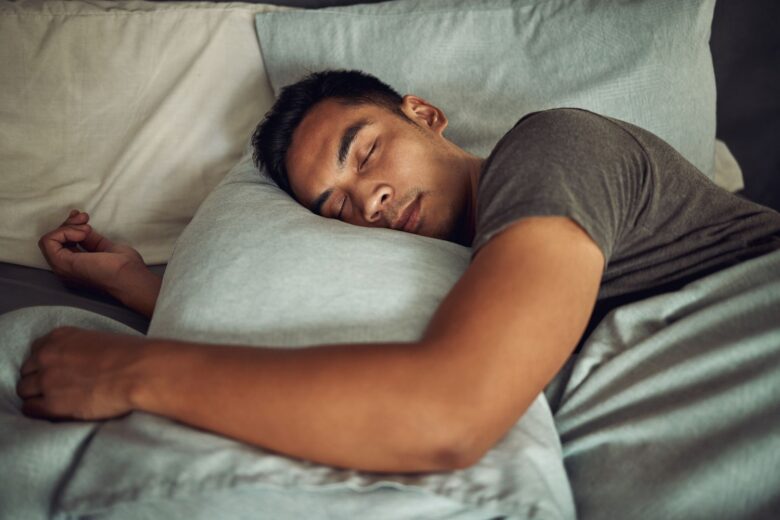Quality sleep is one of the most critical factors for maintaining both mental and physical health. It plays an essential role in allowing the body to repair and rejuvenate itself while solidifying memories and processing emotions. Studies have indicated that poor sleep can lead to a host of issues, including weakened immune system function, increased stress levels, and difficulty concentrating. Therefore, addressing the foundational elements that contribute to restful nights is vital for maintaining optimal well-being. Recognizing the importance of sleep is the first step toward building habits and preparing your environment for achieving them consistently.
Creating the Ideal Sleep Environment
The surroundings in which you sleep deeply influence the quality of your rest. Your bedroom should be a sanctuary dedicated to relaxation and comfort. To create this ideal space, begin addressing light, noise, and temperature levels. Blackout curtains or an eye mask can eliminate intrusive light, while white noise machines or earplugs can reduce disruptions from ambient noise. Room temperature also matters; research suggests maintaining temperatures between 60–67°F is optimal for deep, restful sleep. Bedding, decor, and even wall colors should promote a sense of calm, allowing you to transition more easily into a state of relaxation conducive to sleep.
Essential Sleep Accessories and Gear
There are several items you can include in your sleep routine to enhance comfort and promote uninterrupted rest. Start with a high-quality mattress tailored to your sleep habits, whether you prefer firmer support or something soft and plush. Similarly, pillows should suit your sleeping position—side, back, or stomach—to ensure proper spinal alignment. Additional accessories, such as weighted blankets, can help create a sense of security and relaxation, especially for individuals prone to anxiety. For those focused on improving their sleep, tools such as smart sleep trackers or wearable technology can provide actionable insights into patterns and habits. The right accessories bridge the gap between a generic sleeping experience and one that is highly personalized.
Developing Healthy Sleep Habits
Building and maintaining habits that support consistent sleep is key to ensuring you reap its full benefits. Establishing a consistent sleep schedule is the foundation of these habits; going to bed and waking up at the same time helps regulate your internal clock. Another critical factor is winding down properly before bed. Avoid stimulating activities, excessive use of screens, or bright lights at least an hour before bedtime. Relaxing activities such as reading, meditating, or practicing light stretches are helpful for signaling your body that it’s time to prepare for rest. These habits may take time to develop, but consistency will yield significant changes.
The Impact of Diet and Exercise on Sleep
What you eat and when you engage in physical activity can strongly influence your sleep quality. Consuming heavy meals, alcohol, or caffeine too close to bedtime disrupts your ability to fall asleep or stay asleep. It’s recommended you have your last meal or caffeinated drink several hours before bedtime. Regular exercise, even in moderate forms like walking, contributes to better overall sleep patterns by helping manage stress and promoting deeper sleep cycles. However, vigorous workouts should be completed several hours prior to sleep to allow your body to cool down and return to a state of restfulness. Aligning your diet and exercise practices with your sleep goals bolsters your efforts to establish a healthier routine.
Understanding and Managing Sleep Disorders
For some individuals, achieving restful sleep is more challenging due to underlying sleep disorders. Conditions such as insomnia, sleep apnea, and restless leg syndrome can significantly disrupt rest and require specific interventions. Understanding these disorders begins with identifying symptoms such as chronic fatigue, difficulty falling or staying asleep, or issues with breathing during sleep. If you suspect a sleep disorder, consult a healthcare professional to discuss your symptoms and potential treatments. Devices like CPAP machines are available for those struggling with sleep apnea, while insomnia can often be addressed with cognitive behavioral therapy or improved sleep hygiene. Timely diagnosis and management of sleep disorders are crucial for long-term health.
Prioritizing Your Sleep for a Healthier Life
Sleep is not a luxury; it is a necessity. Prioritizing high-quality sleep forms the foundation of physical health, mental clarity, and emotional stability. By creating an environment that supports relaxation, investing in the right sleep gear, adhering to healthy habits, and addressing potential disorders, you empower yourself to achieve restful nights consistently. Transforming your approach to sleep doesn’t happen overnight, but incremental efforts can yield lasting improvements in your overall well-being. Giving sleep the importance it deserves is an investment in yourself—one that yields invaluable returns in energy, productivity, and happiness.
FAQs
1. How many hours of sleep do I need each night?
Most adults require 7–9 hours of sleep each night. However, individual needs can vary based on age, lifestyle, and health conditions.
2. Can improving my diet really help me sleep better?
Yes. Avoiding heavy meals and caffeine close to bedtime and maintaining a balanced, healthy diet can positively impact sleep quality.
3. What are the best ways to manage insomnia?
Insomnia can often be managed through improved sleep hygiene, relaxation techniques, and cognitive behavioral therapy. A healthcare professional may recommend additional treatments based on your needs.




